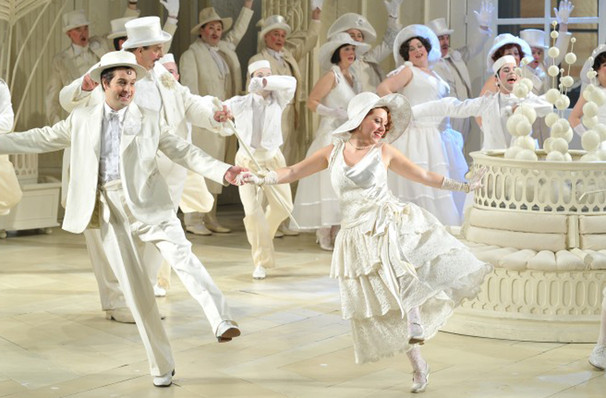The new school year is about to begin, so to get your brain back into action we thought we'd give you a little history lesson! How did the opera begin? Who are the genre's biggest stars? Find out in our brief history of opera!
Many many years ago, about 400 years ago to be precise, in Florence, Italy, a group of Renaissance creatives decided to re-create the dramatic Greek myths through music, and opera was born! Italian composer Jacopo Peri is deemed to have published the first-ever opera in 1597 with Dafne. This new art-form quickly gained popularity and the rest, they say, is history!
BAROQUE ERA (1600 - 1750)
Top composer - Handel (Serse)
Opera Snapshot - Grand, ornate and expensive!
Come the Baroque Era opera had taken Europe by storm! Highly ornate with intricate set and costume design and over the top stories, opera was for the rich. Used by the "creme de la creme" of society (royalty, nobles, politicians) to show off their wealth to visitors, opera was the best propaganda tool in the world. Using the stories of the Greek god's, operas were used to celebrate marriages, coronations and political treaties.
CLASSICAL PERIOD (1750 - 1830)
Top composer - Mozart (The Marriage of Figaro)
Opera Snapshot - More realistic; more humans, fewer gods!
Fast forward to the Classical Period and the standard opera had changed. Less grand and more 'real' these new operas focused on the human story instead of Greek mythology, emulating the era of "Enlightenment" that was sweeping the globe.

ROMANTIC PERIOD (1830 - 1900)
Top composer - Bizet (Carmen)
Opera Snapshot - Large, loud, long
The Romantic Period saw the opera revert back to its Baroque ways (slightly). Although the stories were still human the opera became the "Grand Opera", with works becoming bigger, longer and a lot louder! The focus also moved onto the performers' talents. As part of a movement called bel canto ("beautiful singing"), many composers made their opera's highly dramatic, and tragic, giving their heroines heart-wrenching arias to show off their vocal talents. The most famous of these works (and probably one of the most famous opera in the world) was Georges Bizet's Carmen. The tale of a gypsy woman and her soldier lover took the world by storm with its tragic plot and catchy melodies.
THE LATE 19TH CENTURY & RICHARD WAGNER
The late 1900s saw the rise of one of the most opera composer's in the world, Richard Wagner. Writing and performing in Germany, Wagner's relationship with the classic art form singlehandedly changed the course of opera. Introducing new ideas to harmony and leitmotifs (recurring musical themes) Wagner showed off his ambitions, and talents, with his Ring opera. 15 hours in length and made up of four separate but interconnected operas (Das Rheingold, Die Walkure, Siegfried, Gotterdammerung), Wagner's Ring is one of the most significant compositions in the opera canon, and in turn has made Wagner one of the most influential opera composers in the world.
THE 20TH CENTURY - (1901 - 2000)
Top Composers - Shostakovich (Lady Macbeth of the Mtsensk District), John Adams (Nixon in China)
Opera Snapshot - Politics and opera combine!
The 20th century saw politics and opera collide. With two world wars, as well as a whole host of world-changing political events taking place, it's only natural that art mirrored world events. Dmitri Shostakovich's 1934 opera Lady Macbeth of Mtsensk District was actually banned and condemned by the Soviet government for the heroine's perceived portrayal of the oppression of the Soviet Union.
John Adams' 1987 opera Nixon in China documented the iconic 1972 presidential visit, where Richard Nixon and Chairman Mao met and tried to strengthen the relationship between the USA and the People's Republic of China.
So that's the history of opera, but what will the future hold? Check out our next Opera Month blog as we explore the future of opera!
